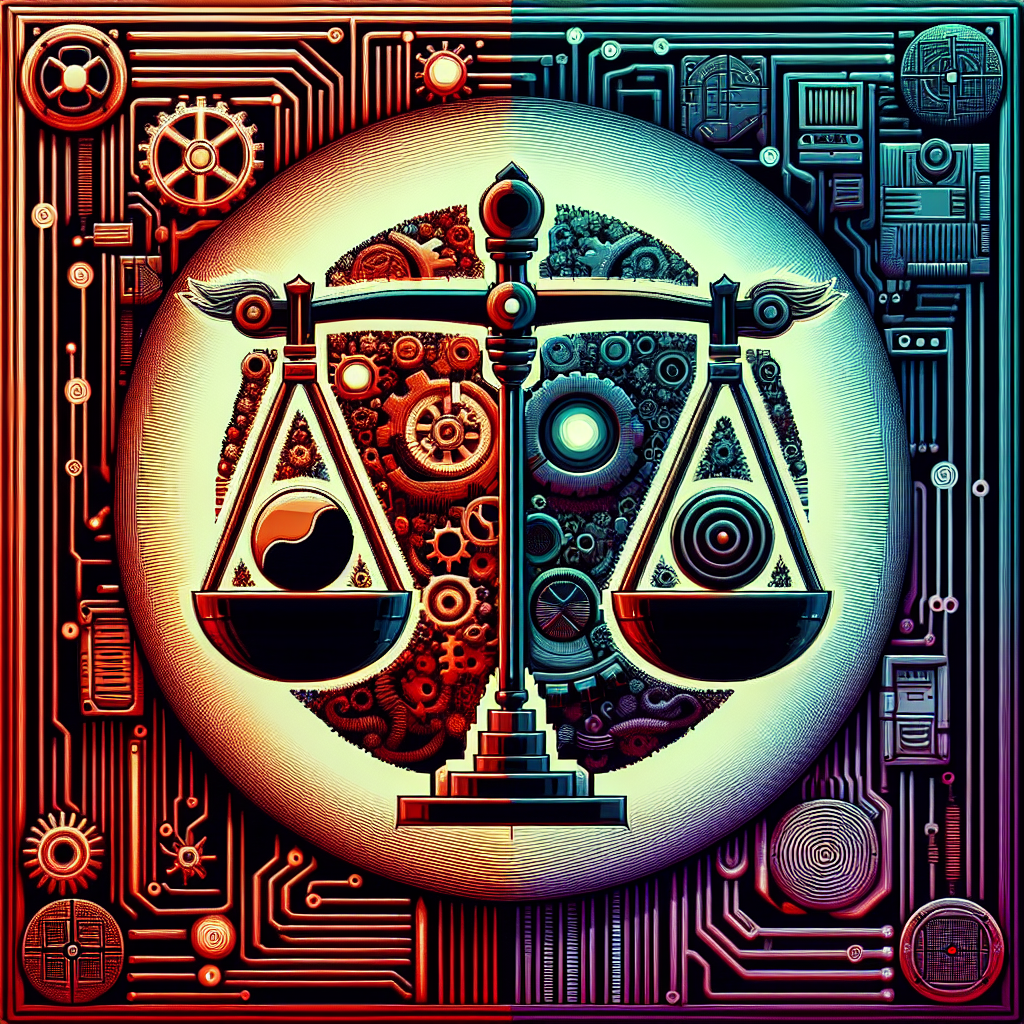Artificial Intelligence (AI) is revolutionizing the way we live and work, with applications ranging from self-driving cars to personalized recommendations on streaming platforms. However, as AI technologies become more advanced and pervasive, they also raise a host of ethical dilemmas that need to be addressed. From concerns about bias and discrimination to questions about privacy and job displacement, the risks and implications of AI are complex and multifaceted.
One of the key ethical dilemmas of AI is the issue of bias. AI systems are only as good as the data they are trained on, and if that data is biased or incomplete, the resulting algorithms can perpetuate and even exacerbate existing inequalities. For example, a facial recognition system trained on predominantly white faces may struggle to accurately identify people of color, leading to discriminatory outcomes in areas such as law enforcement and hiring.
Another ethical concern is the potential for AI systems to intrude on our privacy. As AI algorithms become more sophisticated, they are able to analyze vast amounts of personal data to make predictions about our behavior and preferences. While this can be useful for targeted advertising or personalized recommendations, it also raises serious questions about consent and the protection of sensitive information.
Job displacement is another major ethical dilemma of AI, as automation threatens to eliminate millions of jobs in industries ranging from manufacturing to customer service. While AI has the potential to create new opportunities and increase efficiency, the transition to a more automated workforce could leave many people without the skills or resources to adapt.
In addition to these risks, AI also raises broader ethical questions about accountability and transparency. Who is ultimately responsible when an AI system makes a mistake or causes harm? How can we ensure that AI algorithms are fair and unbiased, and that they are used ethically and responsibly?
To address these ethical dilemmas, policymakers, technologists, and ethicists are working to develop guidelines and regulations that govern the use of AI. For example, the European Union’s General Data Protection Regulation (GDPR) includes provisions for transparency, accountability, and data protection that apply to AI systems. Similarly, organizations such as the Partnership on AI are working to promote best practices and ethical standards for AI development and deployment.
Despite these efforts, ethical dilemmas of AI remain a pressing concern that will only grow more complex as AI technologies continue to advance. It is essential that we engage in thoughtful and informed discussions about the risks and implications of AI, and work together to ensure that AI is developed and used in a way that benefits society as a whole.
FAQs:
What is bias in AI, and why is it a concern?
Bias in AI refers to the tendency of algorithms to produce skewed or unfair outcomes due to the data they are trained on. This can lead to discriminatory results in areas such as hiring, lending, and law enforcement. Bias in AI is a concern because it can perpetuate and even exacerbate existing inequalities, leading to unfair treatment and harm to marginalized groups.
How can we address bias in AI?
Addressing bias in AI requires a multi-faceted approach that includes careful data collection, algorithm design, and oversight. This can involve techniques such as data auditing, bias detection, and fairness testing to identify and mitigate biases in AI systems. It also requires a commitment to diversity and inclusion in the development and deployment of AI technologies.
What are the implications of job displacement due to AI?
Job displacement due to AI has the potential to lead to widespread unemployment and economic disruption. While AI has the potential to create new opportunities and increase efficiency, the transition to a more automated workforce could leave many people without the skills or resources to adapt. This raises questions about social welfare, retraining programs, and the redistribution of wealth in a more automated economy.
How can we ensure accountability and transparency in AI?
Ensuring accountability and transparency in AI requires clear guidelines and regulations that govern the development and deployment of AI systems. This can include measures such as algorithmic transparency, data protection, and oversight mechanisms to ensure that AI is used ethically and responsibly. It also requires a commitment to open dialogue and collaboration between stakeholders to address the ethical dilemmas of AI.

